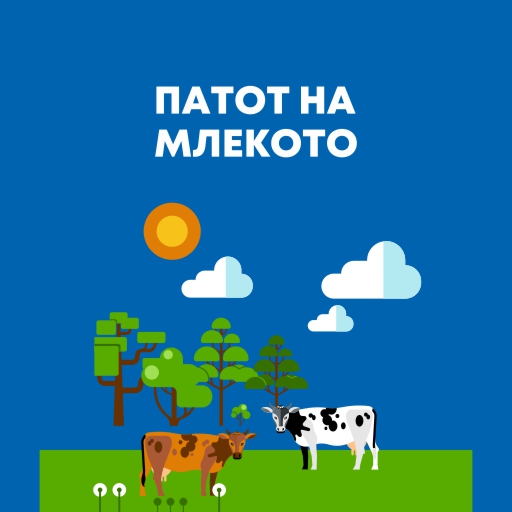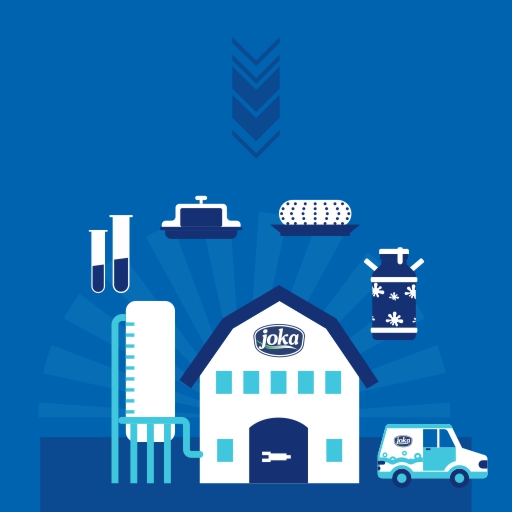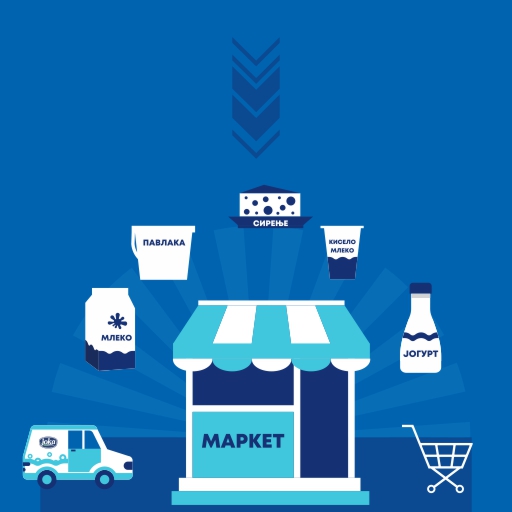1. At the farm
It starts with the cowsCows feed on fresh grass in the morning and evening. Afterwards, they chew their cud for about 8 hours. The cows are milked two to three times a day depending on productivity. Milking is mostly performed mechanically, which increases the productivity and quantity of milked milk. The most important of all is the testing of the milk and the cow’s health, to ensure quality by all necessary standards. The milk is stored in special silos at 4°C for up to 48 hours until transported to the JOCA dairy for further processing and production.
Transport and testing of the quality of the milkThe milk is transported in special stainless-steel cisterns for milk, insulated to maintain temperature. The cistern drivers are trained for initial testing and if the milk does not meet quality standards it is rejected.
2. In the dairy
Laboratory testingSamples taken from the farm and from the tank are immediately subjected to laboratory testing. It is tested for amounts of milk fats, proteins, bacteria and whether water has been added. The presence of antibiotics is also tested, after which the milk receives approval to be included in the production process. If it does not meet the quality standards, the milk will be rejected. After laboratory testing, the milk is subjected to pasteurisation , homogenisation and further processing to finished products.




